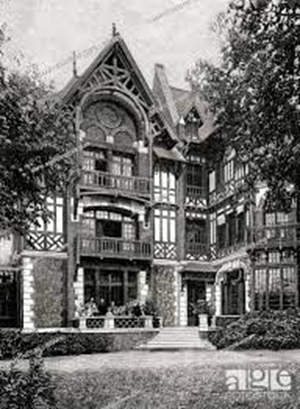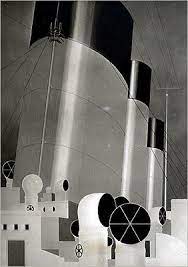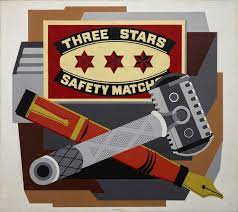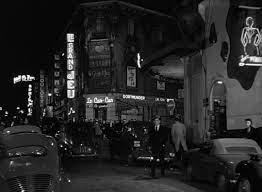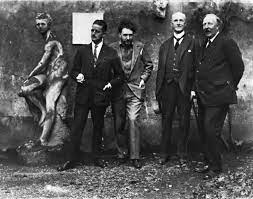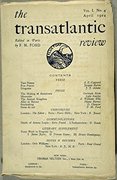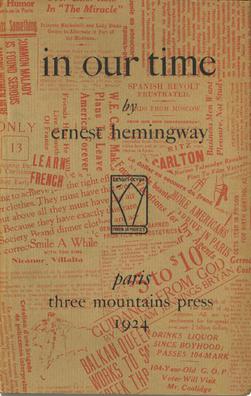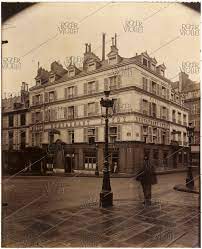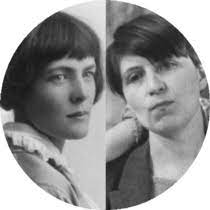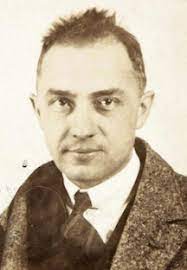Editing this book is probably the most fun Maxwell Perkins, 39, has ever had in his job, but it was also the biggest pain in the patoot.

Maxwell Perkins
Perkins was introduced to the author, well-known columnist Ring Lardner, also 39, by Scribner’s hit novelist F. Scott Fitzgerald, 27. Last July Scott invited Max to have dinner with them out on Long Island where they both lived. A lovely drunken evening ended when Scott drove Max into Durand’s Pond. But that’s another story.
Lardner’s first book, You Know Me Al, a series of letters from an imaginary minor league baseball player, was a success seven years ago. Perkins really wanted to have Scribner’s bring out a collection of Ring’s newspaper columns and magazine articles.

You Know Me Al by Ring Lardner
The problem was that Ring never kept track of where his work had been published. Perkins had to do all the searching and calling around.
At one point he even asked his boss, Charles “Old CS” Scribner, 69, for some extra help, telling him,
I should be of more value if I were more free.”
Ring apologized for all the trouble, and told Max he could visit Great Neck again,
It’s safer now…as Durand’s Pond is frozen over.”
Max did get together with Ring out on Long Island a few times, and, although Lardner was talking about taking a trip to Europe soon, he didn’t look well. His chain smoking was making his cough worse, and, although they both had a lot of drinks, Ring didn’t eat much.
The resulting book, How to Write Short Stories (With Samples), published this month, has been worth the effort, according to Perkins. This should get Lardner some well-deserved recognition.

How to Write Short Stories (With Samples) by Ring Lardner
At the end of the month, Max’s wife is leaving on a Caribbean cruise with some friends, but the editor has too much work to do to be able to join her.
He has to drive to Richmond, Virginia, to meet with one of his authors. Perkins has considered taking a small detour to Middleburg to visit a lovely woman he has met a few times when she visited relatives up north, Elizabeth Lemmon, 31.
But Max is thinking it would be better not to make the detour.

Elizabeth Lemmon
“Such Friends”: 100 Years Ago… is the basis for the paperback series, “Such Friends”: The Literary 1920s. Volumes I through V, covering 1920 through 1924 are available at Thoor Ballylee in Co. Galway, and as signed copies at Pan Yan Bookstore in Tiffin, OH, City Books on the North Side and Riverstone Books in Squirrel Hill, Pittsburgh, PA. They are also on Amazon.com and Amazon.co.uk in print and e-book formats. For more information, email me at kaydee@gypsyteacher.com.
Mark your calendar! The Greater Pittsburgh Festival of Books returns to the Pittsburgh Theological Seminary in Highland Park this Saturday, May 11. Stop by the “Such Friends” booth in Writers’ Row to receive the special Festival discount on all five volumes.
This summer I will be talking about the literary 1920s in Paris and New York at the Osher Lifelong Learning Institute at Carnegie-Mellon University.
Manager as Muse, about Perkins’ relationships with, Fitzgerald, Ernest Hemingway and Thomas Wolfe, is also available on Amazon.com and Amazon.co.uk in both print and e-book versions.
If you want to walk with me through Bloomsbury, you can download my audio walking tour, “Such Friends”: Virginia Woolf and the Bloomsbury Group.


